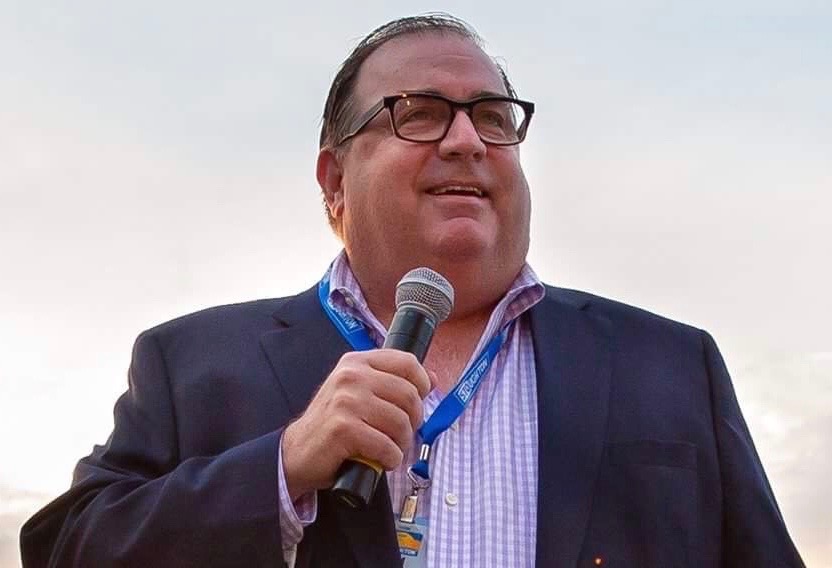| Written by Ted Jackson |
| May 2007 |
|
With the Vast Majority of Treatment Employees in Recovery relapse is a systemic industry risk factor A few years ago, Dr. Douglas Cook was driving down a country road near his treatment center in Monroe, LA. He spied a little store off the road, drove in and bought a quart of beer. Just like that, banal in its details, so began his relapse. Clinicians know all too well that the moment of relapse can often be similarly banal for many addicts… a small trigger, It’s the back stories behind the banality of these relapse moments that are often anything but; and thus it was in the case of Dr. Cook, overwhelmed as he was at the time by a setback in his son’s battle with kidneys that hadn’t worked properly since the day he was born. “It had been a long, heart wrenching experience for my wife and I over many years, one that had taken a toll on our relationship,” says Dr. Cook. “But when my son turned 14, my wife gave him a kidney and we thought we might be out of the woods.” But Dr. Cook’s son had to take strong drugs to block immune responses to the new kidney. And one day, not too long before he drove up and bought that quart of beer, Dr. Cook found out that the immune response drugs had given his son lymphoma. Throwing his bible at the wall, overwhelmed, Dr. Cook says he cursed God. “It really was almost too much to bear,” he said. And Dr. Cook admits that, long before this, he had become aloof from his peers and withdrawn. Comical And, of course, there were the comical aspects of the relapse, like when Dr. Cook thought no one would know he was boozing, pulling up at the liquor store drive- thru in his bright orange Hummer, the only one in town. Naturally, people did notice. And, eventually, his employees organized an intervention. So, off Dr. Cook went to treatment, a distressful and immensely difficult experience, he says. While in treatment, Dr. Cook was beset by fears of loss, loss of his family, his prestige and, of course, the treatment business he had spent the last 15 years building. “Like I was Crazy” Over the next two years, Dr. Cook was sweating bullets day in and day out as the business lost money, with his investors breathing down his neck every step of theway. But his persistence and vision paid off, and over the years Palmetto Addiction Recovery Center has grown. By the end of this year, the center will have over 90 beds, and annual revenues of almost $7 million. Certainly, as Dr. Cook contemplated hisrelapse while in treatment, it was a lot to lose. But Dr. Cook is far from alone within the treatment industry in his experience. As the vast majority of the industry’s 200,000 or so employees are in recovery – most guesses put the figure at well over 80 percent – employee relapse is among the major business risks that the treatment industry faces, far greater than any other industry experiences this very particular form of human resources systemic risk. And at the top of the industry – the for-profit founders and owners of treatment centers, as well the non-profit founders and executives, both on the private and publicly funded side – the problem of relapse appears to be fairly pervasive, just as it is with addicts generally.
And for every Dr. Cook, who successfully completed treatment over two years ago and now sits at the helm of his still thriving treatment center as CEO, although he has given up the medical director slot, there may also be many who don’t stop it in time, and whose relapses wind up costing them everything. The Case of Allen Bombart Over the years, industry suppliers and colleagues remember having conversations with Bombart that were often rambling and incoherent. And, now, few people in the treatment industry have kept up relations with him. Typical was one treatment center owner’s response: “I haven’t talked to Allen for a long time. We had a falling out.” Treatment Magazine had difficulty finding a working phone number for Bombart so we could call and ask him about his side of the story. In 2002, despite his trouble staying clean, Bombart dropped about $8 million to buy a facility in Sunrise, FL, just west of Ft. Lauderdale, that had several years earlier been built to house a high-end psychiatric facility, which later failed. Calling his new center The Family, which had about a 100 beds, Bombart remade the old Pathways facility, located in Delray Beach, into a high-end specialty center for woman, complete with its own stables. The Family was also quite high-end. Bombart now had two centers with over 120 beds in two locations, but, sadly, he still appears to have had troubles as rumors circulated of big employee turnover at The Family, along with financial difficulties. Finally, in January, The Family and Pathways were pushed into involuntary bankruptcy, Chapter 7. Florida authorities have pulled the facilities’ licenses and about 125 staffers, down from a peak of 225, are now without jobs and may be owed as much as $300,000. Bombart’s attorney has said he wants to pay everyone, but a federal judge in February was wondering what happened to $1 million that went through The Family’s hands since it closed. And a South Florida treatment CEO in early April said he heard The Family might be moving from Chapter 7 to voluntary bankruptcy, Chapter 11, leading one South Florida treatment CEO to wonder: “could Allen Bombart already be making a comeback?” |


 a snap decision and, of course, denial… always denial.
a snap decision and, of course, denial… always denial. One South Florida addiction medicine specialist, who, of course, did not mention the names of his treatment center owner clients, says that over the years he has dealt with many who have had trouble staying clean. “It was sad, many just couldn’t seem to get it, even though their treatment centers were helping many achieve what they themselves couldn’t.”
One South Florida addiction medicine specialist, who, of course, did not mention the names of his treatment center owner clients, says that over the years he has dealt with many who have had trouble staying clean. “It was sad, many just couldn’t seem to get it, even though their treatment centers were helping many achieve what they themselves couldn’t.”








